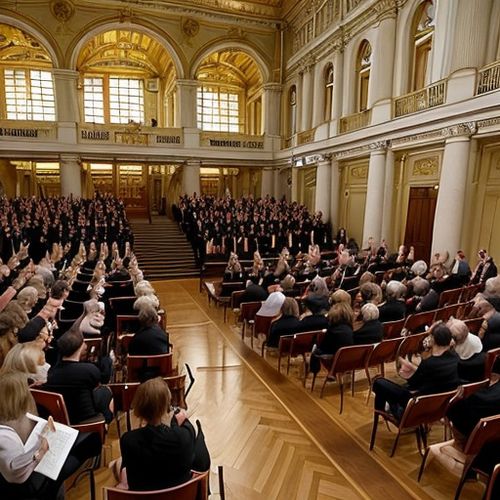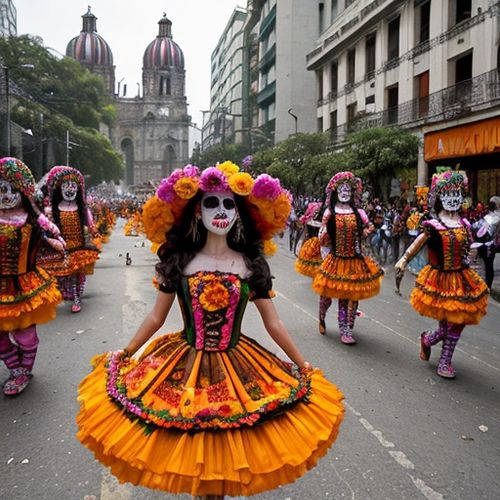The recent decision by Vienna's prestigious Musikverein, home to the legendary Golden Hall, to abolish standing room tickets has sparked a wave of discontent among classical music enthusiasts. For decades, the standing areas in the Golden Hall have been a cherished tradition, offering budget-conscious fans a chance to experience world-class performances at a fraction of the cost. The abrupt removal of this option has left many questioning the institution's commitment to accessibility and its historical roots.
The Golden Hall's standing room tickets were more than just a cheap alternative; they were a cultural institution in their own right. Students, young professionals, and die-hard music lovers would queue for hours, sometimes in freezing temperatures, for the chance to witness musical history unfold from the hall's distinctive parabolic galleries. The standing area created a unique atmosphere - a democratic space where aristocrats and janitors alike could share in the transcendent power of music.
Musikverein officials cite "safety concerns" and "enhancing audience comfort" as primary reasons for the policy change. However, many regular attendees suspect financial motivations behind the move. With standing tickets priced at around €15 compared to seated tickets that can exceed €200 for prime performances, the venue stands to significantly increase revenue by eliminating the budget option. This comes amid reports of financial struggles at many European cultural institutions following pandemic-related losses.
The backlash has been particularly fierce among Vienna's student population, for whom the standing tickets represented perhaps their only access to hear the Vienna Philharmonic in their home venue. Petitions circulating online have gathered thousands of signatures, while social media platforms buzz with nostalgic stories of memorable performances experienced from the hall's iconic standing areas. Some commentators note the irony of making classical music less accessible just as many institutions pledge to broaden their audiences.
Historical context adds weight to the controversy. The Golden Hall's standing areas date back to its 1870 opening, originally designed to accommodate servants who would accompany their aristocratic employers to concerts. Over time, these spaces evolved into beloved features of Viennese musical life. Their elimination represents a break with 150 years of tradition at a venue that prides itself on historical continuity. Music historians point out that many legendary performances - including famous New Year's Concerts - were witnessed by standing audiences whose enthusiastic responses became part of the events' lore.
Comparisons with other major concert halls reveal no clear consensus. While London's Royal Albert Hall and New York's Carnegie Hall maintain standing room options for certain events, other venues have similarly restricted access in recent years. The Berlin Philharmonic's home, for instance, eliminated most standing room after its 1960s reconstruction. This global trend toward prioritizing comfort over capacity raises questions about how classical music venues balance preservation with modernization.
Behind the practical concerns lies a deeper philosophical debate about the nature of concert-going. Traditionalists argue that removing standing areas sanitizes the concert experience, distancing it from the more visceral musical traditions of past centuries. Others counter that modern audiences expect certain comforts and that standing for hours detracts from musical appreciation. The Golden Hall's decision forces a reconsideration of what constitutes an "authentic" classical music experience in the 21st century.
As the controversy continues, some compromise solutions have been proposed. These include limited standing room for select performances, discounted seated tickets for students, or enhanced standing areas with better sightlines and comfort. Whether the Musikverein will reconsider remains uncertain. What is clear is that this decision has touched a nerve, revealing how deeply intertwined musical traditions are with questions of class, accessibility, and cultural memory in Vienna's storied musical landscape.
The standing room controversy also reflects broader tensions in classical music's ongoing identity crisis. As institutions grapple with aging audiences and calls for greater diversity, decisions that appear to prioritize revenue over accessibility risk alienating precisely the younger, more diverse listeners that concert halls say they want to attract. The Golden Hall's choice may be pragmatic from a business perspective, but its cultural cost - both symbolic and real - continues to reverberate through Vienna's musical community.
For now, music lovers who once relied on standing tickets must either pay significantly more or miss out entirely. As one disappointed regular lamented, "The music hasn't changed, but who gets to hear it live has." This sentiment captures the heart of the matter - in altering its ticket policies, the Golden Hall isn't just changing its seating chart; it's reshaping who gets to participate in one of classical music's most sacred rituals.

By Jessica Lee/May 20, 2025

By Victoria Gonzalez/May 20, 2025

By Christopher Harris/May 20, 2025

By Sophia Lewis/May 20, 2025

By Natalie Campbell/May 20, 2025

By Christopher Harris/May 20, 2025

By George Bailey/May 20, 2025

By Sarah Davis/May 20, 2025

By Daniel Scott/May 20, 2025

By Benjamin Evans/Apr 11, 2025

By Emily Johnson/Apr 11, 2025

By Sophia Lewis/Apr 11, 2025

By Emma Thompson/Apr 11, 2025

By Noah Bell/Apr 11, 2025

By James Moore/Apr 11, 2025

By Christopher Harris/Apr 11, 2025

By Christopher Harris/Apr 11, 2025

By Daniel Scott/Apr 11, 2025

By Grace Cox/Apr 11, 2025